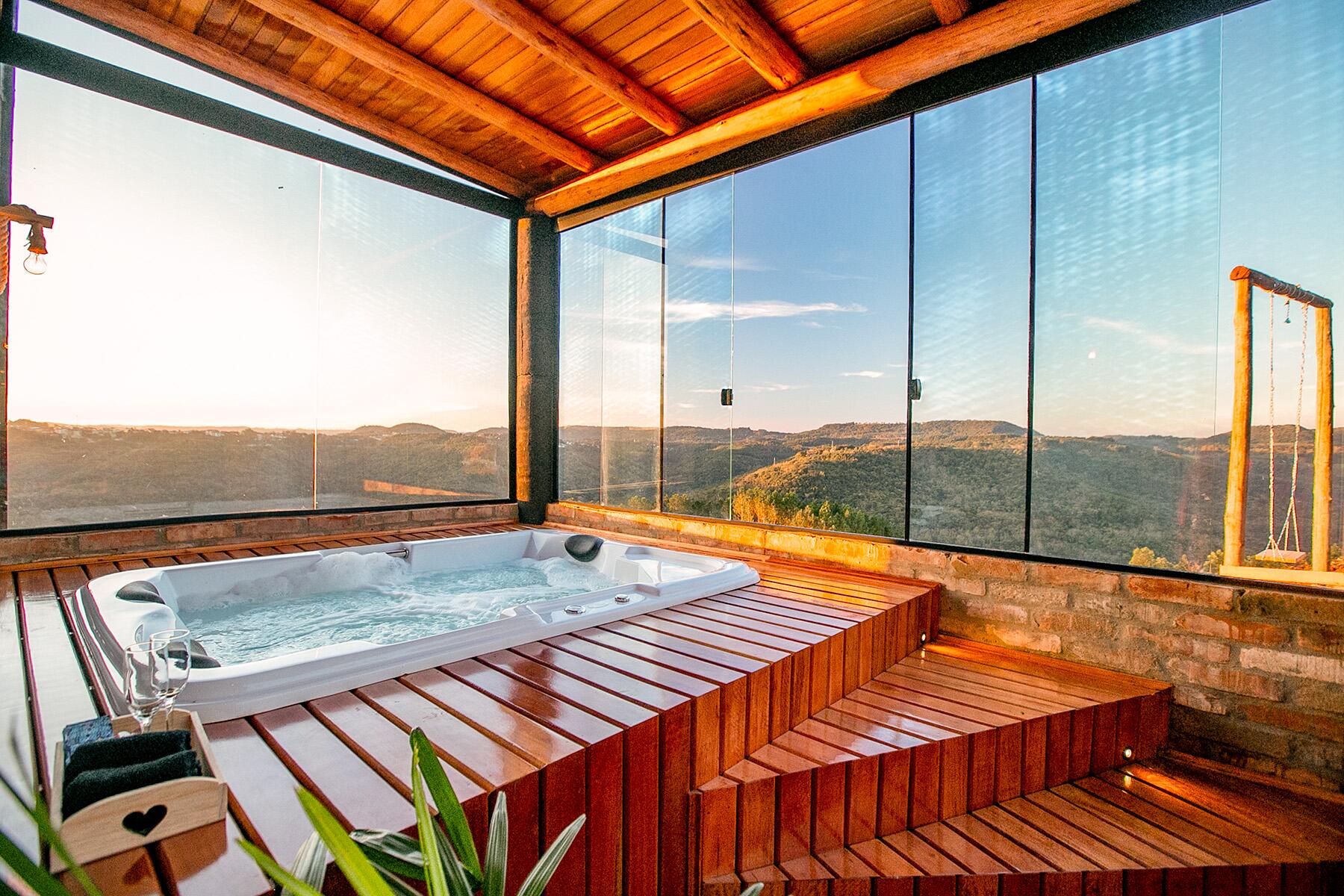Has Big Hotel been dethroned?
In a world where the threat of coronavirus still looms large, will travelers who are venturing out for the first time since lockdown gravitate toward trusted brand name hotels or look toward the seclusion of standalone homes on platforms like Airbnb? How will travelers’ preferences and criteria for choosing accommodations change in this new normal? It’s a question everyone in the hard-hit travel industry is grappling with as boutique hotels, large corporate chains, and homestays all try to position themselves as a safe choice moving forward.
From my perspective, as a full-time travel writer who spent 350 nights a year in hotels pre-COVID, I see a new option that will become increasingly appealing. Short term rentals or apartment hotels are a new asset class in the travel industry, one that provides the privacy and security of having your own space along with the safety of the CDC guidelines for medical-grade cleaning standards that travelers expect from large brands. These short term rentals have traditionally targeted corporate travelers, who might move from city to city every month or two, but they can be great options for leisure travelers too.
Venture capital-backed companies like Domio and Sonder have invested heavily in brand-building, with their own apps and social media accounts to build brand awareness and loyalty among guests. But there’s another company flying under the radar that I discovered on a recent stay in Los Angeles that really impressed me.
CorpHousing Group is a privately held company founded in 2017 as a national, short-term apartment rental operator focusing on high-density, urban cores. They currently manage 776 keys across 34 properties in eight cities, with a direct pipeline to 3,000 keys dependent on demand. That means they have a right of first refusal on more than 3,000 units as leases come up or there are vacancies in the building.
Recommended Fodor’s Video
Short term rentals or apartment hotels are a new asset class in the travel industry.
One of their newest acquisitions is a number of units in the Herman W. Hellman building in downtown Los Angeles, where I stayed in July. Built in 1903 as the first high rise in Los Angeles, the HWH building is now being renovated into 188 luxury apartments with Italian marble kitchens, Bosch appliances, smart home technology, and Jacuzzi tubs.
I wasn’t expecting any sort of personalized service, and I didn’t need it—I chose this apartment for the in-unit washer/dryer, free parking, kitchen amenities, location, and price. However, upon my late evening arrival, frustrated with my flight and unable to find the front door, a friendly (masked and gloved) gentleman named Sam came rushing out to greet me and help me with my bags.
Sam is one of seven “city heroes” at CorpHousing Group, responsible for a team of greeters throughout Los Angeles. He lives on the premises and was more attentive and helpful during my stay than a butler at a five-star hotel. I tried not to bother him too much, since he always responded to my text messages so promptly no matter the time of day. As coronavirus is airborne, I anxiously texted him to inquire about the building’s airflow, he patiently and thoroughly explained that the historic building has no central air conditioning, which means the air supply in each unit is only circulated throughout that unit, not shared throughout the building. Per company policy, a new air filter is installed before each guest checks in for their stay.
Some of CorpHousing Group’s buildings similar to the ones in Los Angeles and New York are only available for 30-day minimum stays based on city ordinances and permitting, but in Miami Beach, Seattle, and Denver, they have nightly rentals that offer flexible accommodations for travelers of all types. Even in Los Angeles, at $99 per night for a two-bedroom apartment, my local friends and families marveled at the value and considered moving in, appreciating the flexibility of what would essentially be a month-to-month lease without worrying about utilities or parking fees. With more companies offering employees the chance to work remotely, this could be the start of a new wave of slow travel that Americans with limited vacation days haven’t been able to enjoy before.
Managing partner Brian Ferdinand considers CorpHousing Group to be a real estate marketing company first and a hospitality company second. Unlike Domio, Sonder, Lyric, and the recently-closed Stay Alfred, Ferdinand has neglected brand building in order to focus on the nuts and bolts—getting operations systems, and infrastructure in place and becoming quickly profitable while acquiring the right real estate. As a privately-held company, he doesn’t have to answer to investors.
With more companies offering employees the chance to work remotely, this could be the start of a new wave of slow travel that Americans with limited vacation days haven’t been able to enjoy before.
“At one point the focus was on controlling the entire building,” Ferdinand says. “That’s something that we look at opportunistically now but it’s not critical at all to our ability to scale or our strategy. We have such a strong ground team in customer service and operations that we can support many buildings in a particular city. Some of our competitors have tried to streamline for efficiency, to automate the process, and that strategy lends itself to managing entire buildings. We don’t look at it as a disadvantage when we’re operating in different buildings across a city.”
Ferdinand says around 80% of their business was corporate business travel pre-COVID but now it’s a split between business and leisure, with families moving around and doing extended stays in various cities over the summer. Rooms are available to book through their SoBeNY website, although they’re also listed on hundreds of external sales channels, too, from Booking.com to Hotels.com.
“We’re intensely focused on the customer experience in a business where there isn’t traditionally a personalized level of service,” Ferdinand says. He believes CorpHousing Group’s city hero program is a differentiator, even though it’s not advertised on their website, and being a great building partner to their landlords has also been key to their success thus far.
So how’s business now? CorpHousing Group has certainly slowed down their rate of growth during these past few months, but they are still picking up new units as many owners are facing non-renewals and non-payments from tenants. With favorable deals, these building vacancies can become immediate cash flow.
“Our monthly ADRs (average daily rate) are down significantly but the volume is very high,” Ferdinand says. “When international travel restrictions start to lift, I think that’s the tipping point and ADRs will significantly jump. There’s a limitation now to domestic travelers and in these highly-trafficked cities, a huge portion of the travel to and from is international. We think probably by Q2 2021, it’ll be back. Once they are able to open up international travel, there will be tremendous viability and profitability in our business. Until that occurs, we move forward—stable but not making significant profits.”



